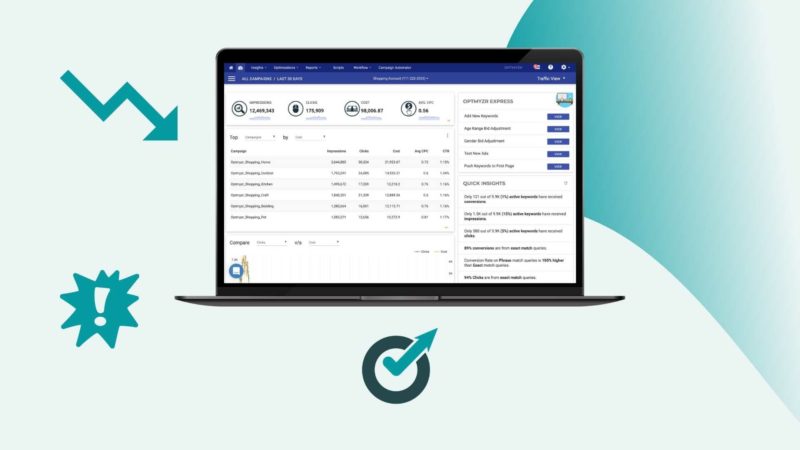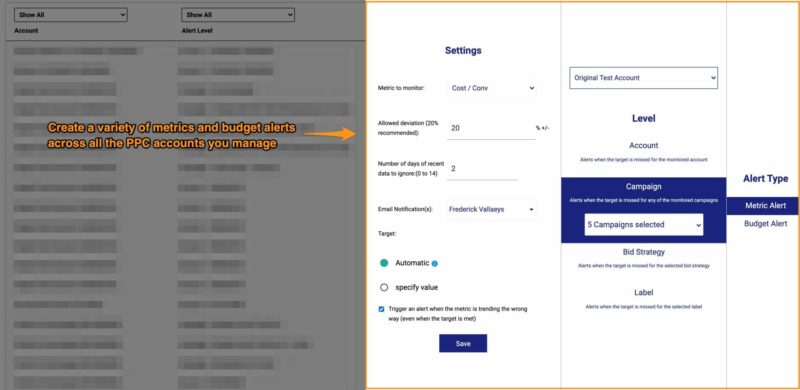Opinions expressed in this article are those of the sponsor. MarTech neither confirms nor disputes any of the conclusions presented below.
Why PPC automation wrecks some search marketers
PPC automation is not “PPC on autopilot” so you need to keep monitoring the machines to avoid mediocre results.

Explore Silicon Valley and you’ll see the bubble-topped Waymo minivans essentially “self-teaching” how to drive without a human in charge. In air transportation, the largest and most modern jets are becoming almost foolproof, with the pilots in command for less and less of any given flight.
Automation is great… when applied as one part of a more strategic approach to solving needs in our society. But automation isn’t foolproof. It’s not perfect. And it doesn’t fully take into account all variables, particularly intangibles.
Don’t mistake automation for autopilot
The machines are getting smarter — if not brilliant — but machine learning and artificial intelligence are not any of the following:
- Artificial intuition
- Artificial intellect
- Artificial improvisation
- Artificial insight
Humans possess those essential traits of intuition, intellect, improvisational flair, and insight. The human still plays the pivotal role in paid search. Sure, it’s possible to create functional, competent PPC by putting things essentially on autopilot. But who wants to just be functional?
Great PPC is there for the taking, but it requires PPC pros who want to use autopilot for what it’s good for, allowing THEM to remain captain of the PPC airliner.
As the pilot in command, the PPC pro needs to monitor all systems — exploring nuances and every crevice of their programs. They need to look beneath the surface information, because the myriad automations built by the ad engines can only take them so far toward their true goals.
Alerts: Your ticket to thrive
Being in command of paid search programs requires agility. Agility requires seeing subtle changes and nuances in an instant. This is where great PPC pros, armed with powerful PPC management tools, can thrive.
When set up properly, alerts point us in the right direction to dig deeper into anomalies and subtle changes that can hamper campaign success or open doors to much more effective programs. For example, tools in the Optmyzr PPC Management suite like PPC Investigator make it easy to identify and act on opportunities, such as tweaking settings, adding negative keywords, changing tCPA or tROAS, updating ads, and myriad others.
Custom alerts have expanded greatly, particularly over the last year or so. They generally can be categorized into five levels:
- Account-level alerts can help prioritize time allocation, for example by working first on accounts that are missing their target conversion volumes by the greatest amount.
- Campaign level alerts (new in 2020) can surface opportunities to make even well-performing accounts do even better, for example by pointing to a campaign that’s dragging down the account averages.
- Label level alerts help monitor campaigns with a common theme, such as brand campaigns or campaigns for specific product lines.
- Bid strategy level alerts allow monitoring performance of campaigns whose bids are automatically managed by the ad engine.
- Budget level alerts help advertisers spend their whole budget without overspending on individual accounts, a specific set of campaigns, or many accounts across platforms, including Google, Microsoft, Facebook and Amazon.

Alerts sound great. BUT…
Creating alerts is actually quite easy in Optmyzr. The problem can be figuring out the thresholds that lead to useful alerts. It’s common for even the most seasoned PPC pro to struggle to pick a target for all the metrics when their primary focus is usually on just one or two key metrics.
Here’s the good news: Optmyzr has used insights from the millions of campaigns our suite has helped manage and used our own algorithms to simplify this process. Our PPC Management Suite has an option to select a specific target automatically, based on recent performance. This setting allows you to get notified if performance slips overall, even if you didn’t have a specific goal in mind, such as a specific target CPA.

Automated alert setup also helps PPC pros quickly identify negative trends, BEFORE the trend actually leads to missed targets. The alerts could surface accounts that are meeting the ROAS target today but have steadily been declining in performance, making a missed ROAS likely within the coming weeks. This helps search marketers make informed, human decisions to fix issues before a client becomes unhappy. Remember what we’ve been saying for a couple of years now: Machines + Humans = Better PPC!
Much like a pilot of an aircraft, identifying the underlying issue quickly before it becomes a true problem facilitates smart course corrections and adjustments to help achieve or beat the objective.
Beyond alerts: Smart planning drives success
While we wanted to focus primarily on alerts for this article, it’s important to remember that any facet of the tools you use must work seamlessly with the bigger picture. Optmyzr offers a variety of ways to keep accounts in great shape while still finding out about problems when they do arise.
- PPC Audits – functionality that helps PPC pros identify structural issues, which can lead to missed targets.
- Account Blueprints – one of the newest Optmyzr features that empowers entire teams to work collaboratively and flawlessly to execute the overarching strategy set by your team.
- Insights – tools that help pinpoint the root cause of issues.
- Optimizations – one-click simplicity to implement bulk optimizations based on best practices and proven performance across all accounts being managed.
Too many PPC pros miss the opportunity to maximize the highly automated PPC world. Can a PPC pro succeed by running competent, “hands-free” PPC? Of course. Many do. Those who want to stand out, though, know that great opportunity is hidden in the nuanced ways we monitor and manipulate automations.
PPC is a game where fractions of a percentage point can be the difference between winning and losing. Subtle changes in performance, new dynamics in the market, missed creative opportunities and so many factors can come into play. Tools that constantly monitor for those subtleties, such as those found in Optmyzr, make the PPC rockstar stand out from the rest.
Related stories
